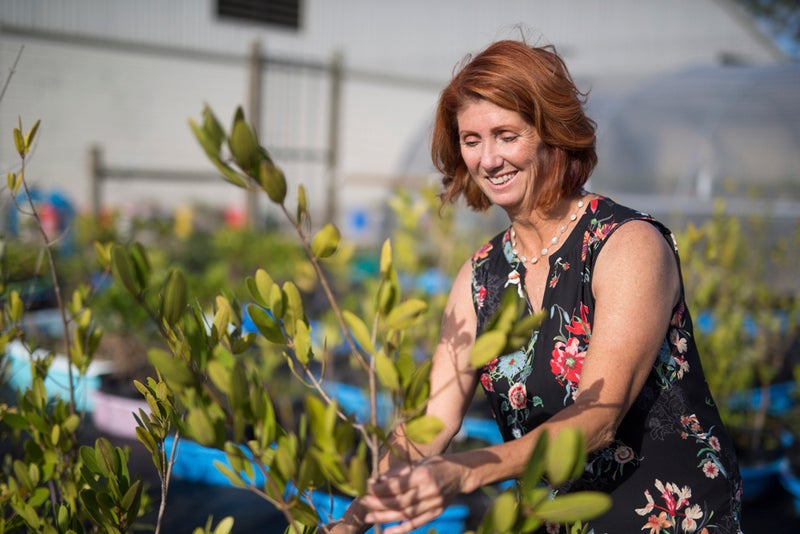Non-traditional Student Trades Computers for Career In Conservation Biology

After a 27-year career in software development, Orlando, Fla. resident Suzanne Connor faced a real challenge. The mother of two was laid off.
“My last two years of my job, I was so unhappy,” Connor said. “I was kind of relieved when I was laid off. I knew I needed to find something that would make me happy to go to work again.”
It was 2011 and her son and daughter were taking classes at Seminole State College. After a little soul searching she decided to go back to school and joined them. Being back in a classroom reminded her how much she liked school so she kept with it, transferring to UCF in 2014 through the DirectConnect program. Connor is one of the more than 41,000 students who have used the program to access UCF.
By 2015 she had earned her bachelor’s degree in interdisciplinary environmental studies and decided to enroll in UCF’s professional science master’s degree program in conservation biology, which is open to students with bachelor’s degrees.
Today, she is taking master degree level conservation biology classes and recently won a national student poster competition at the 2016 Annual Water Resources Conference.
“I’ve always loved the outdoors,” Connor said. “When I realized that I could do this for a living, it felt amazing.”
She found many ecological-volunteer opportunities at UCF. Prompted by the Service Learning component in Professor Peter Jacques’, Ph.D., Sustainability class, she began volunteering at the UCF Arboretum, which led to her internship and independent study supervised by the Arboretum’s Assistant Director, Jennifer Elliot. But it was the time spent volunteering with biology Pegasus Professor Linda Walters, Ph.D., and her restoration work in Mosquito Lagoon that solidified Connor’s decision to change careers.
The connection with Walters, who leads oyster restoration and living-shoreline stabilization projects at Canaveral National Seashore, also led to Connor’s own research.
Under Biology Instructor Melinda Donnelly, Ph.D., and Walters’ supervision, Connor began researching the impact of sediment type on the root structure of red mangroves at restoration sites in the Canaveral National Seashore. Connor found both leaf growth and root structure are impacted by sediment type, but that red mangroves grow despite the type of sediment that they live in.
Walters said that Connor’s mangrove research was so thorough that it will be included in a longer manuscript about the living shoreline program alongside Walters’ and Donnelly’s own work.
“Suzanne undertook a really important question,” Walters said. “She is a hard worker and it is very gratifying to see her be successful at UCF.”
Connor’s research earned her the top award for the student poster competition at the 2016 AWRA national conference and her hard work led to a part-time job in Walter’s lab as a field tech and research assistant. When she’s not taking evening classes or home with her family, Connor is in that lab or doing field work with Walters.
Connor said she knows she’s usually the oldest “kid” in the classroom, but that it hasn’t been an obstacle.
“I’ve always felt welcomed,” she said.
That’s good because Connor expects to continue to be part of the UCF community until spring 2018 when she hopes to graduate. After that she hopes for a job in shoreline restoration.
“I hope to have a job making our coastlines more resilient, and improving water quality,” she said.
